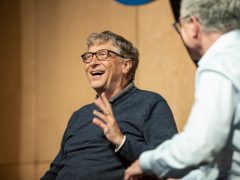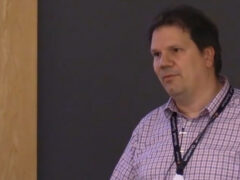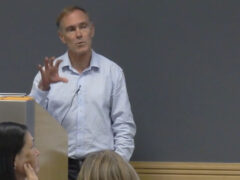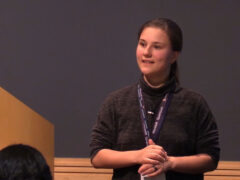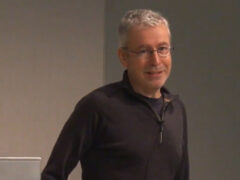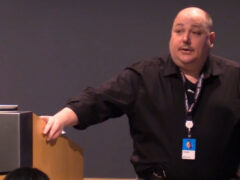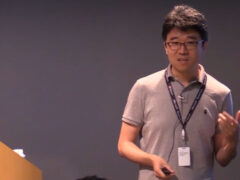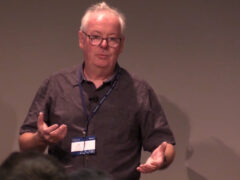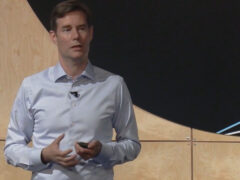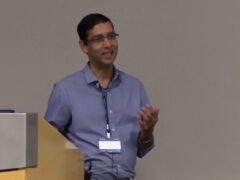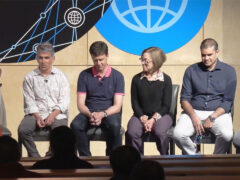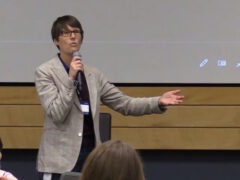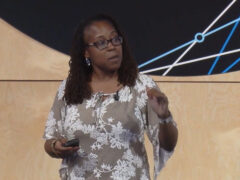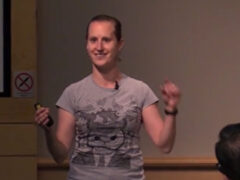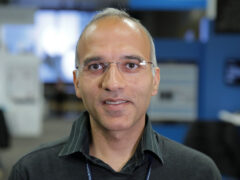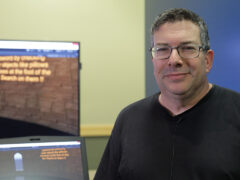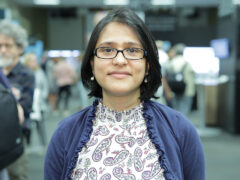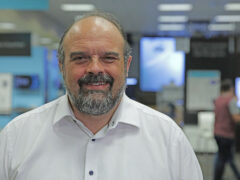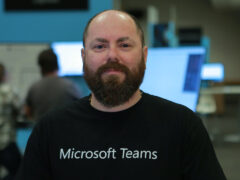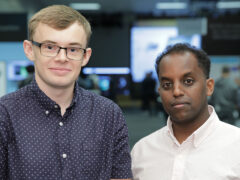Universal Design: How to Attract More Diverse Researchers
The world is moving to create buildings, products, devices, services, and real and virtual environments that are more universally designed. It is possible to create environments that are usable and enable the success of all people regardless of age, culture, gender, or disability. Given the importance of computing as an underlying infrastructure technology, it is critical to the success of this movement to graduate more computer scientists from diverse groups, in particular PhDs, who can contribute to solutions with perspectives that may challenge conventional thought. With only 3.3% of the 2012-2013 doctoral graduates in computing coming from underrepresented ethnic groups, new and different recruitment and retention approaches at our academic institutions are required. This session will introduce the new field of universal design and then panelists will discuss the challenge of keeping up with the increased demand in computer science programs and hiring of underrepresented minorities. They will suggest some controversial solutions to the industry issue. Join us for a lively discussion.
Speaker Details
Dr. Tolle is the Director of the Data Science Initiative in Microsoft Research Outreach, Redmond, WA. Since joining Microsoft in 2000, Dr. Tolle has acquired numerous patents and worked for several product teams including the Natural Language Group, Visual Studio, and the Microsoft Office Excel Team. Since joining Microsoft Research’s outreach program in 2006, she has run several major initiatives from biomedical computing and environmental science to more traditional computer and information science programs around natural user interactions and data curation. She was also directed the development of the Microsoft Translator Hub and the Environmental Science Services Toolkit. Dr. Tolle is one of the editors and authors of one of the earliest books on data science, The Fourth Paradigm: Data Intensive Scientific Discovery. Her current focus is develop an outreach program to engage with academics on data science in general and more specifically around using data to create meaningful and useful user experiences across devices platforms.
“Lili Cheng is a Distinguished Engineer and General Manager in Microsoft Research. She manages FUSE (Future Social Experiences) Labs, which is a multidisciplinary team which applies expertise to areas such as: interest-based networks, nearby sharing, creative expression, crowd work, and collective action. We collaborate with colleagues in startups, academia, the art & design community, as other teams across Microsoft and industry.
Prior to Microsoft, Lili worked in Apple Computer’s Advanced Technology Group, on the User Interface research team, where she focused on Quicktime Conferencing and Quicktime VR. Lili is also a registered architect; she worked in Tokyo and Los Angeles for Nihon Sekkei and Skidmore Owings and Merrill on commercial urban design and large-scale building projects. She has taught at NYU-Interactive Telecommunications as well as Harvard University. ”
Dr. Ann Quiroz Gates is a Professor and Chair of the Computer Science Department at the University of Texas at El Paso and directs the NSF-funded Cyber-ShARE Center of Excellence. Her research areas are in formal software specification and scientific workflows. Gates leads the Computing Alliance for Hispanic-Serving Institutions, an NSF-funded consortium that is focused on the recruitment, retention, and advancement of Hispanics in computing, and is a founding member of the National Center for Women in Information Technology. She received CRA’s 2015 A. Nico Habermann Award, the 2010 Anita Borg Institute Social Impact Award, and the 2009 Richard A. Tapia Achievement Award for Scientific Scholarship, Civic Science, and Diversifying Computing. In addition, Gates was recognized for her service to the IEEE-Computer Society with the IEEE-CS Golden Core Award and was named to Hispanic Business magazine’s 100 Influential Hispanics in 2006.
Ed Lazowska holds the Bill & Melinda Gates Chair in Computer Science & Engineering at the University of Washington, where his research and teaching concern the design, implementation, and analysis of high performance computing and communication systems, and, more recently, the techniques and technologies of data-intensive discovery. A long-time advocate for increasing participation in the field, he serves on the Executive Advisory Council of the National Center for Women & Information Technology, and on the National Research Council’s Committee on Women in Science, Engineering, and Medicine. He is a Member of the National Academy of Engineering and a Fellow of the American Academy of Arts and Sciences.
Dr. Charles Isbell received his B.S. in Computer Science from Georgia Tech and his Ph.D. in Computer Science from MIT. After four years at AT&T Labs/Research, he returned to Georgia Tech to join the faculty of the College of Computing. Charles’ research interests are varied, but he focuses on building autonomous agents that engage in life-long learning in the presence of thousands of other intelligent agents, including humans. His work has been featured in the popular media, as well as in technical collections. Charles also pursues reform in computing education. He was a developer of Threads, Georgia Tech’s structuring principle for computing curricula and one of the developers of Georgia Tech’s MOOC-supported Masters of Science in Computer Science, the first of its kind in the world. Recently, he has assumed the role of the Senior Associate Dean for the College.
- Date:
- Speakers:
- Ann Quiroz Gates, Charles Isbell, Ed Lazowska, Kristin Tolle, and Lili Cheng
- Affiliation:
- Microsoft Research, University of Texas at El Paso, University of Washington, Georgia Institute of Technology
-
-
Jeff Running
-

Kristin Tolle
Director
-

Lili Cheng
Corporate Vice President and Distinguished Engineer
-
Series: Microsoft Research Faculty Summit
-
-
Quantum Computing and Workforce, Curriculum, and Application Development: Case study
Speakers:- Krysta M. Svore,
- Martin Roetteler
-
-
-
-
Crowd, Cloud and the Future of Work: Updates from human AI computation
Speakers:- Besmira Nushi,
- Vani Mandava
-
-
-
-
-
-
-
Productivity in Software Development
Speakers:- Neel Sundaresan,
- Margaret-Anne Storey,
- Prem Kumar Devanbu
-
-
-
-
-
-
-
Accessible Virtual Reality
Speakers:- Eyal Ofek
-
Calendar.help: A Virtual Meeting Scheduling Assistant
Speakers:- Pamela Bhattacharya
-
Visual Studio IntelliCode
Speakers:- Mark Wilson-Thomas
-
Microsoft Teams: Collaborate with Any Researcher Anywhere
Speakers:- Jethro Seghers
-
Project Alava: Programming Webs of Microcontrollers
Speakers:- James Devine,
- Teddy Seyed
-
AI in PowerPoint
Speakers:- Kostas Seleskerov

